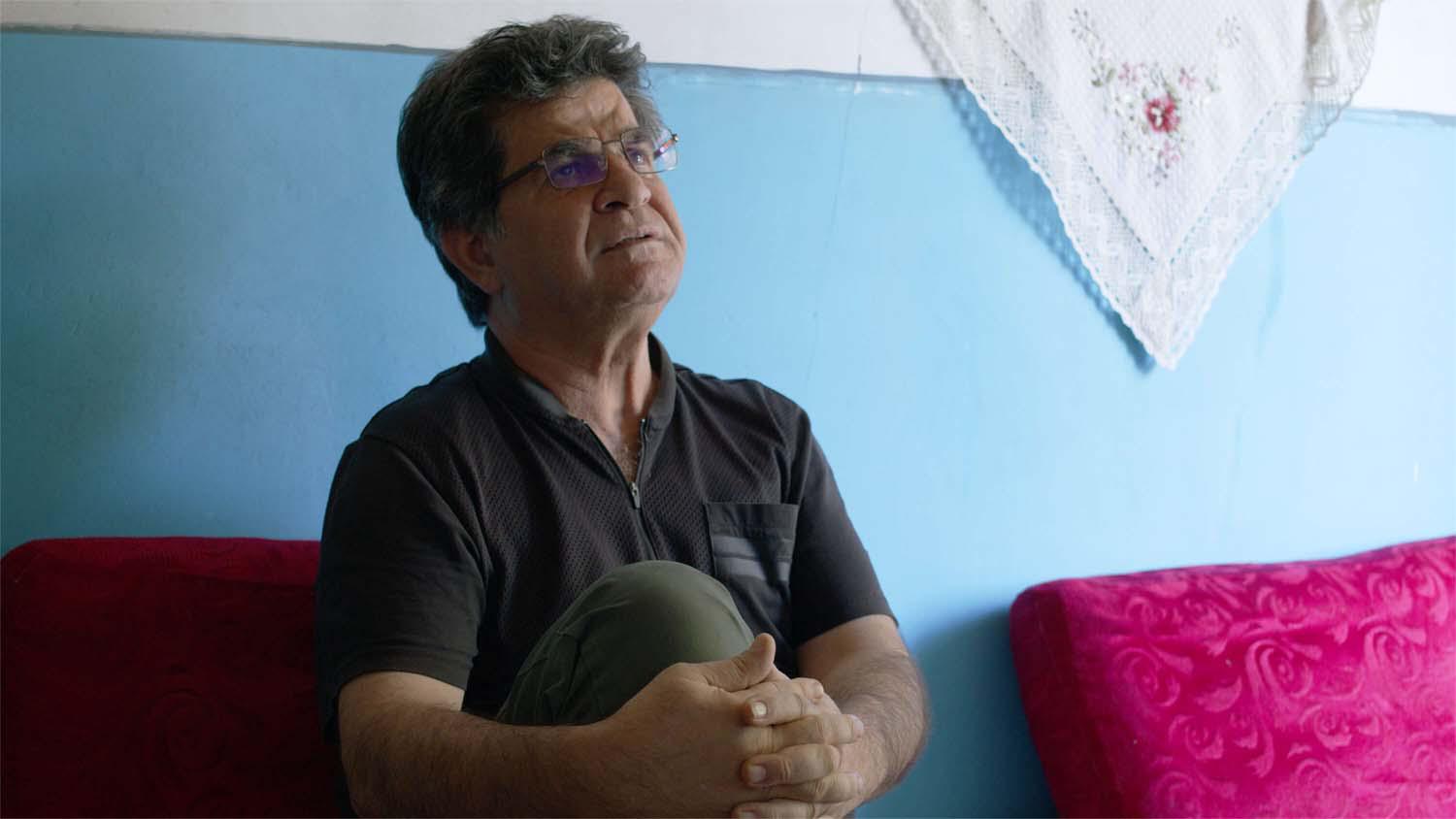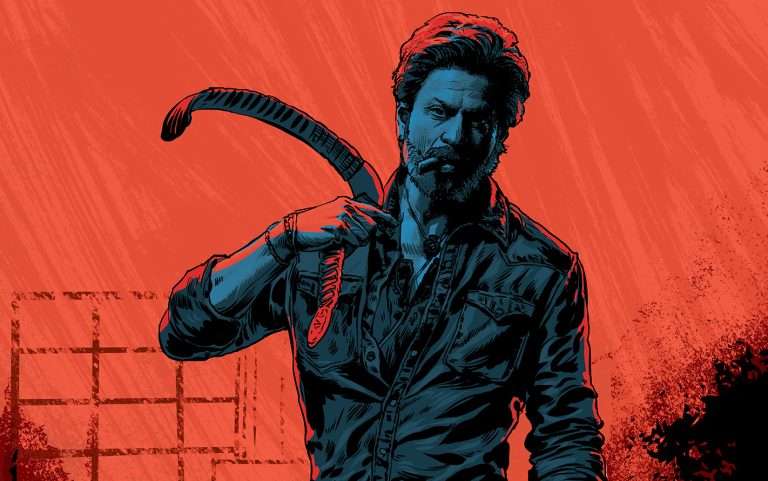No Bears (2022) Movie Review: Iranian auteur Jafar Panahi, renowned for his bold political stance and ingenious and unflinching depiction of humanity, is one of the most intellectually profound voices who offer an audacious commentary on social and political issues plaguing contemporary Iranian society. His deeply humanistic yet radically defiant films explore the restrictions Iranians face in their homeland, especially the women’s struggle for equality and artistic self-determination. His authority-baiting films, which evoke social urgency, are a protest against the rigid and repressive forces of the Iranian regime. His determined pursuit to shed light on the restrictive and traditional regime prompted the dissident in him to create subversive art even after his arrest in 2010 for “propaganda against the system” and for his films that criticized modern Iran.
Despite Iran’s premeditated and state-sanctioned gamble to silence Panahi, he continued his artistic quest through provocative films like This Is Not a Movie (2011), Closed Curtain (2013), Taxi (2015), 3 Faces (2018) grounded in passionate social criticism. His latest film No Bears, originally titled Khers Nist, the fifth feature film made without government authorization, comes at a time when women-led protests in Iran are challenging patriarchal laws by burning their hijabs, cutting their hair, and chanting the slogan “woman, life, freedom” in a national uprising demanding freedom. Even amidst adversity, Panahi aesthetically transforms his limitations into art, and once again, he positions himself as a bystander on the margins of society to explore his relationship with cinema.
In No Bears, Panahi compulsively retreats to a self-referential introspection in which he dissects the creative process of filmmaking as well as raises the question of personal, political, and artistic freedom of the artist. Premiered in competition in Venice, this deeply autobiographical film, which blurs the line between reality and fiction, utilizes elements of meta-cinema and self-reflexivity to weave a complex two-fold narrative. The compelling autofiction opens in a bustling street in Turkey, where an Iranian couple Zara (Mina Kavani), a waitress in a cafe, sneaks out to meet her partner Bakhtiar (Bakhtiar Panjei). Having acquired a fake passport for Zara after a long wait, Bakhtiar insists Zara go on ahead and flee to Europe, and he will join her later. An emotional and confused Zara expresses her refusal to leave without Bakhtiar, just as the assistant director, Reza (Reza Heydari), calls “Cut.”
The scene slowly transitions to the footage on a laptop, and we see Panahi watching the shooting of the film over the web, offering directorial advice to Reza, to whom he has entrusted the task of hands-on direction. Panahi plays his real self as the acclaimed filmmaker who is forbidden to make films or leave the country. Refusing to stay idle and seize his creative outputs, he delivers direction from a remote Iranian village while the shoot is taking place across the border in Turkey. When he loses his internet connection, his eager-to-please, sycophantic host, Ghanbar (Vahid Mobaseri), comically tries to get to the rooftop himself, apprehensive that the tradition-laden villagers might think Panahi is spying on them.
When Ghanbar informs Panahi that he is attending an engagement ceremony that involves a traditional “feet washing,” in which the villagers gather at a river where the bride-to-be’s feet are bathed by the women and the groom’s by the men, Panahi hands his camera and asks him to shoot the ceremony. Ghanbar, who was reluctant at first for he has never handled a film camera, is mocked by the villagers saying, “You’ve replaced the pick and shovel with the camera!” to which he retorts, “I’m a professional filmmaker!” While he waits for the internet connectivity to restore, he wanders the village, snaps photographs of local kids, and learns from Ghanbar’s elderly mother (Narjes Delarem) patriarchal practices that betroth a girl when her umbilical cord is cut while she cooks for him.
Tension builds when the tradition-laden villagers find that Panahi has taken an illicit visit through the smuggler area to a hilltop overlooking the invisible Turkish border. Reza shows how he can slip back and forth to shoot the film, but Panahi flees from there as if he had seen a ghost. And it escalates when he acquaints a distraught and troubled young woman, Gozal (Darya Alei), who pleads with Panahi to help in covering up a photograph she believes he had taken of her and Solduz (Amir Davari). Gozal is in love with Solduz but was promised at birth to the reckless and hot-headed Jacob (Javad Siyahi). She implores him not to show the picture, and if he does, “there will be blood.” Even though Panahi insists that there is no such photograph, the villagers and the local sheriff (Naser Hashemi) pressure him to give up the scandalous and incriminating evidence. In the meantime, things go south for Zara and Bakhtiar as well when they realize that the film, which is based on real circumstances, is being manipulated for a happy climatic resolution. She laments her frustration of spending ten years trying to get out of the country and addresses the camera and remarks, “We’re in this mess, so you can create your happy ending. But this is all fake.”
The title of the film, No Bears, is evocative as it delineates the unfounded superstitious beliefs, customs, and practices of rural Iran as well as the restrictive government of the towns. When Panahi goes for an evening stroll to the environs of the village, he asks Ghanbar, “What about the bears?” And Ghanbar dismisses his fear and says that they are all “nonsense, stories made up to scare us. Our fears empower others. No bears!” Just like the bears are concocted and fictitious stories to scare people, the repressive and superstitious rules and customs of the theocratic and autocratic Iran are a means to make the citizens obey and adhere to the tyrannical rule. This symbolic and metaphorical title is indicative of how the state ideology enslaves its citizens by inducing threats and brutality.
No Bears thematically meditate on the power of artistic creation and storytelling, the censorship of art and artistic freedom, the absurdity of dogmatic religious beliefs and traditions, and the fear engulfing politically oppressive contexts. The film makes a divisive contrast between the rural and the urban spaces and the superstition of the bygone ages and the modern control of power. The film delves into the consequences of fumbling with half-truths to satisfy the storytelling desires of the nation and authorities and the repercussions of such misrepresented tales. It also discloses the misogynistic and sexist prejudices that restrain a woman from living the life of her dreams in the name of irrational religious customs.
Panahi utilizes a multilayered narrative strategy to explore the restrictions imposed on the personal and artistic freedom of the artist. The metafilm, aka film-within-a-film technique, peels opens like an onion to depict two parallel love stories, their struggles within the sinister system, and the illuminating tragic end. The narrative becomes self-reflexive and self-aware as it parallels Panahi’s own life. Panahi is shown filming when he is banned from making films, and he gets drawn into the village politics and scandal when he photographs a couple whom he should not have captured on camera. The personal stories of Reza and Bakhtiar, Gozal and Solduz, and Panahi himself reflect how their lives are intertwined with the country’s politics and power structures.
No Bears is a complex metafiction that shed light upon the intricacies of an artist creating his art in Iran. A subversive film at heart, Panahi stresses the life-affirming power of cinema and the isolation and confinement an artist feels when he is denied of pursuing his dreams. Panahi took the proverb necessity is the mother of invention seriously to make this thoughtful and contemplative docu-fiction hybrid film. Panahi’s stoic presence guides the film throughout and holds it all together while things fall apart around him. Panahi delivers an honest self-portrait and holds himself accountable for his wrongdoings, thus questioning his art and personality with remarkable sincerity. It is, without doubt, ensured that Panahi will continue to make use of his resourcefulness to critique the archaic and repressive social, political, and religious traditions of Iran. The limits imposed on Panahi by the authoritarian regime of Iran will never be a stumbling block in exercising his artistic freedom.









![Bromates [2022] Review: This tone-deaf comedy has nothing to redeem itself](https://79468c92.delivery.rocketcdn.me/wp-content/uploads/2022/10/Bromates-2022-Movie-Review-768x512.jpg)